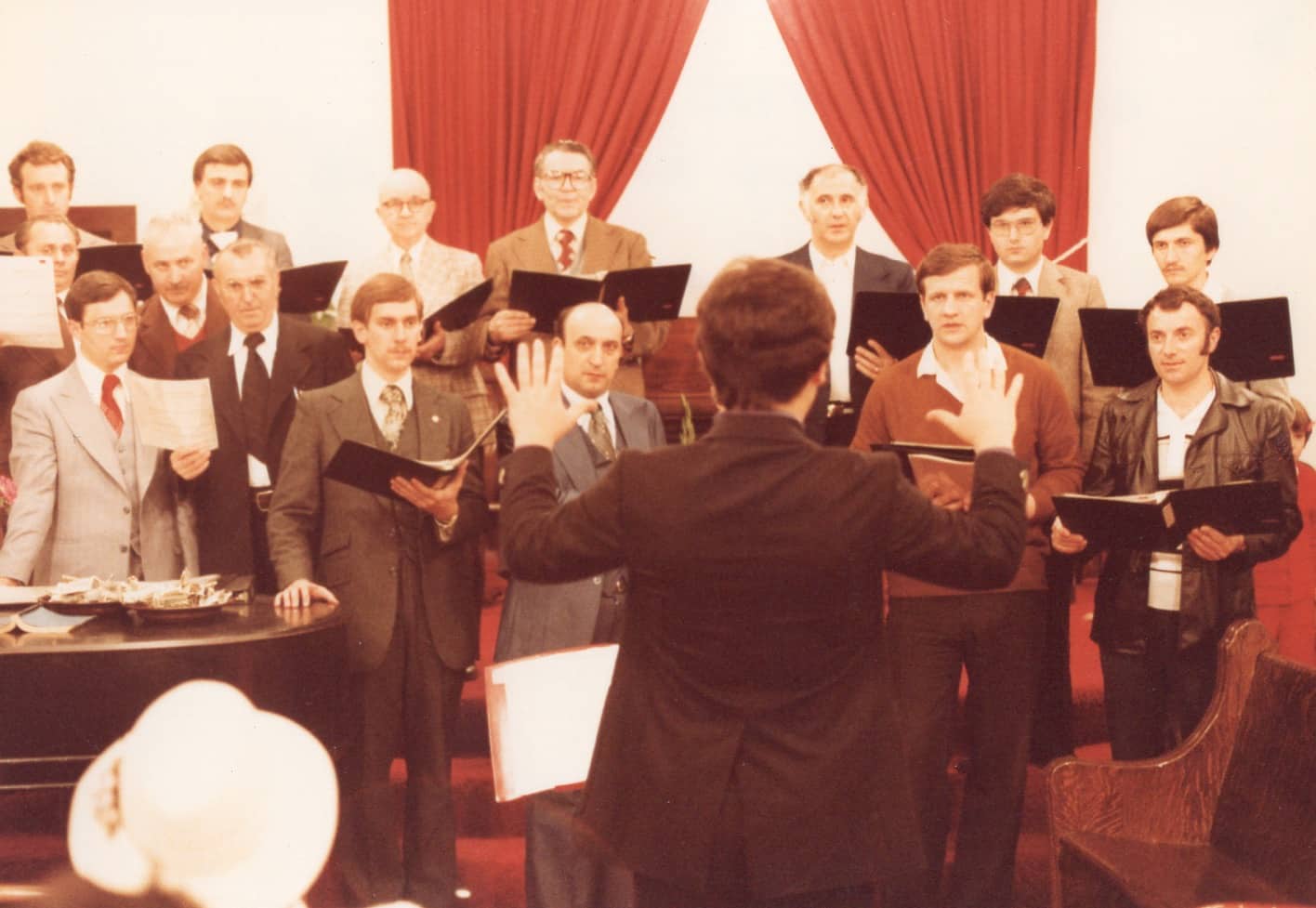Our Priority:
The Kingdom of Heaven!
Romanian
Our Church History
A century of Providence!
For us, faithful Christians, history is not just a succession of events, but a living testimony to God’s steadfast love and His providential plans. The First Romanian Baptist Church of Detroit stands as an eloquent example of this truth.
The beginnings of this church date back to the start of the 20th century. While Romania of King Carol I, Take Ionescu, Titu Maiorescu, Ioan Luca Caragiale, and other prominent figures was preparing for great changes in the Balkan region, a significant number of people from Bihor and Transylvania, then part of the Austro-Hungarian Empire, emigrated to America in search of a better life.
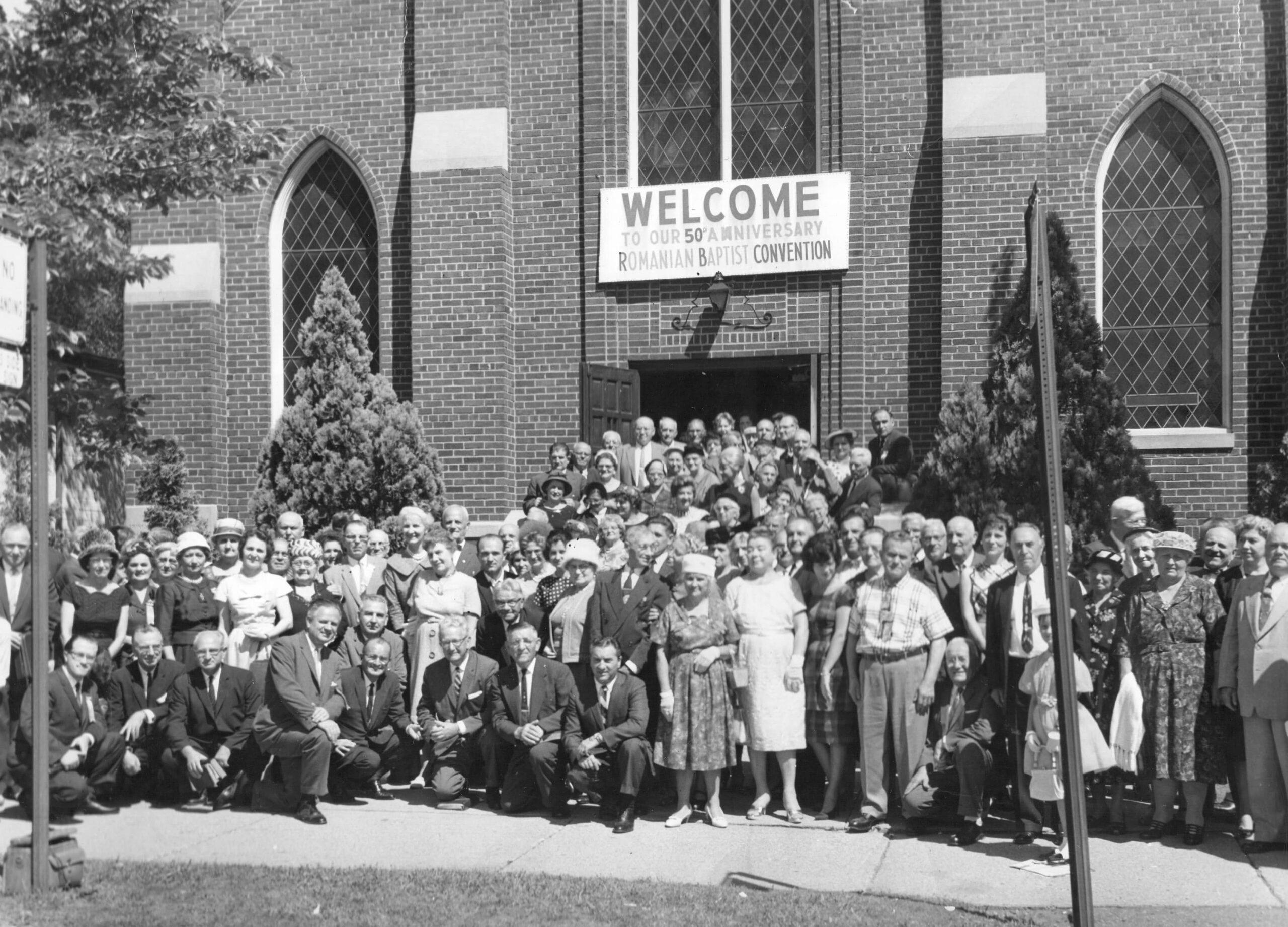
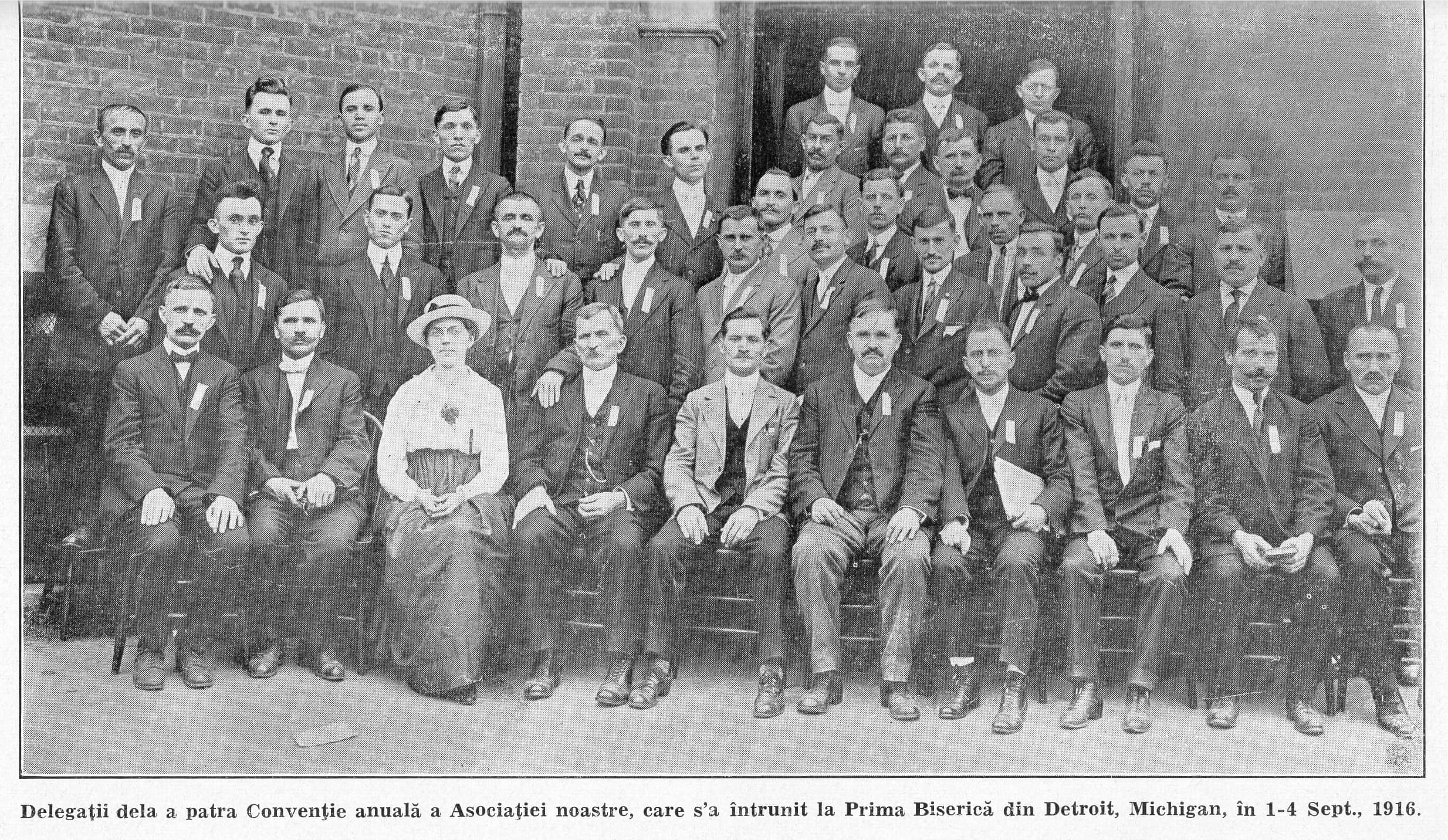
În anul 1912, Rev. Christopher Burnette, pastorul de la “Ferry Avenue Baptist Church,” a botezat pe Teodor Păișan, marcând astfel începutul misiunii baptiste române în Detroit.
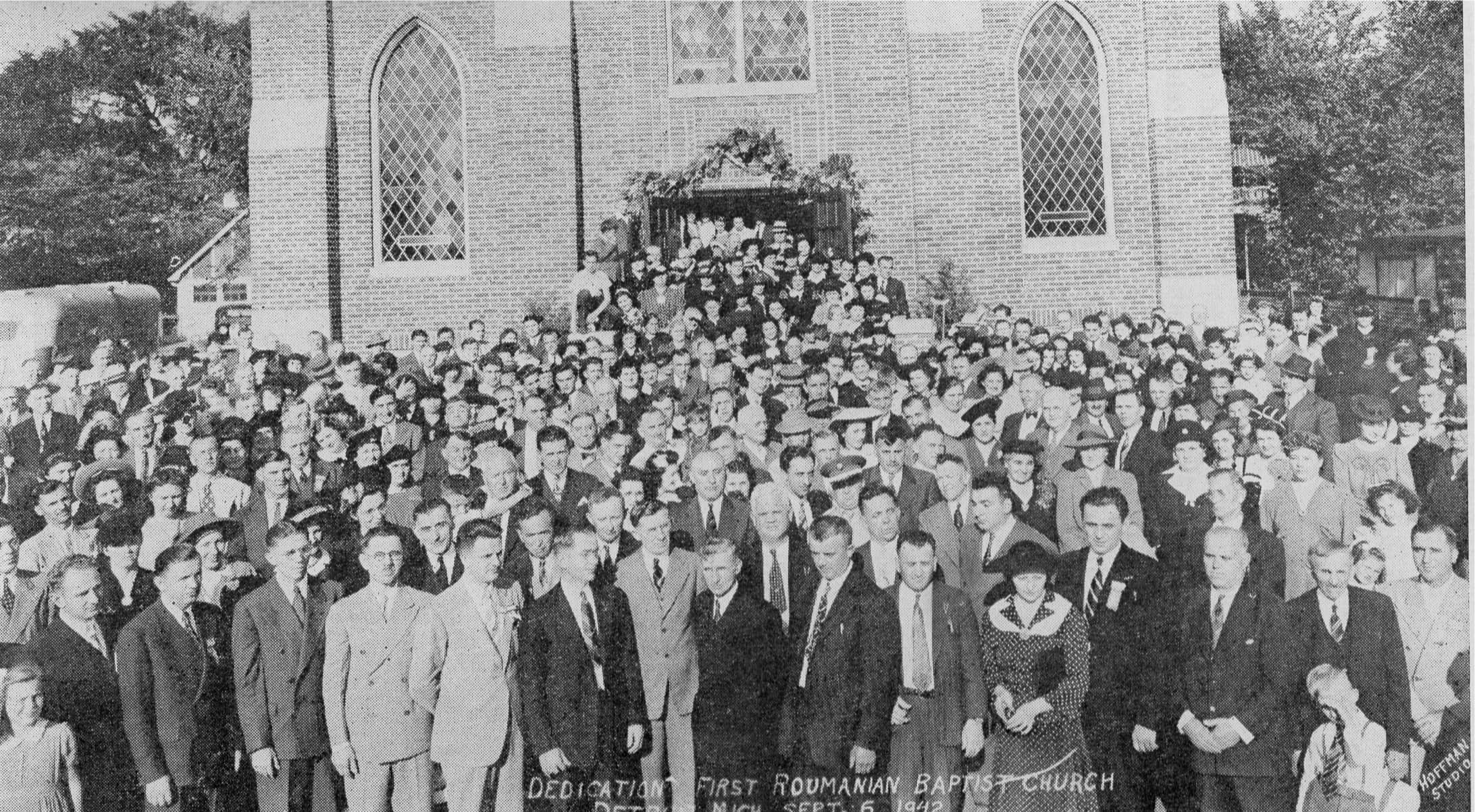
They settled in areas such as Akron, Gary (Indiana), Ohio, or Pennsylvania. Detroit, in full industrial development, quickly became a magnet for migrant workers. Among the first Romanian Baptist believers to arrive in Detroit was Mihai “Pocăitul” (The Converted), whose presence in the area is noted in 1911, although there are not many details about his activity.
In the following years, the mission expanded. In 1913, missionary outposts were established in both the south of the city (River Side) and the north. These initiatives, blessed by God, led to the growth of groups of believers and the formation of churches. The evangelistic and missionary spirit of the Romanian Baptist believers in Detroit was rewarded with an ever-increasing number of conversions.
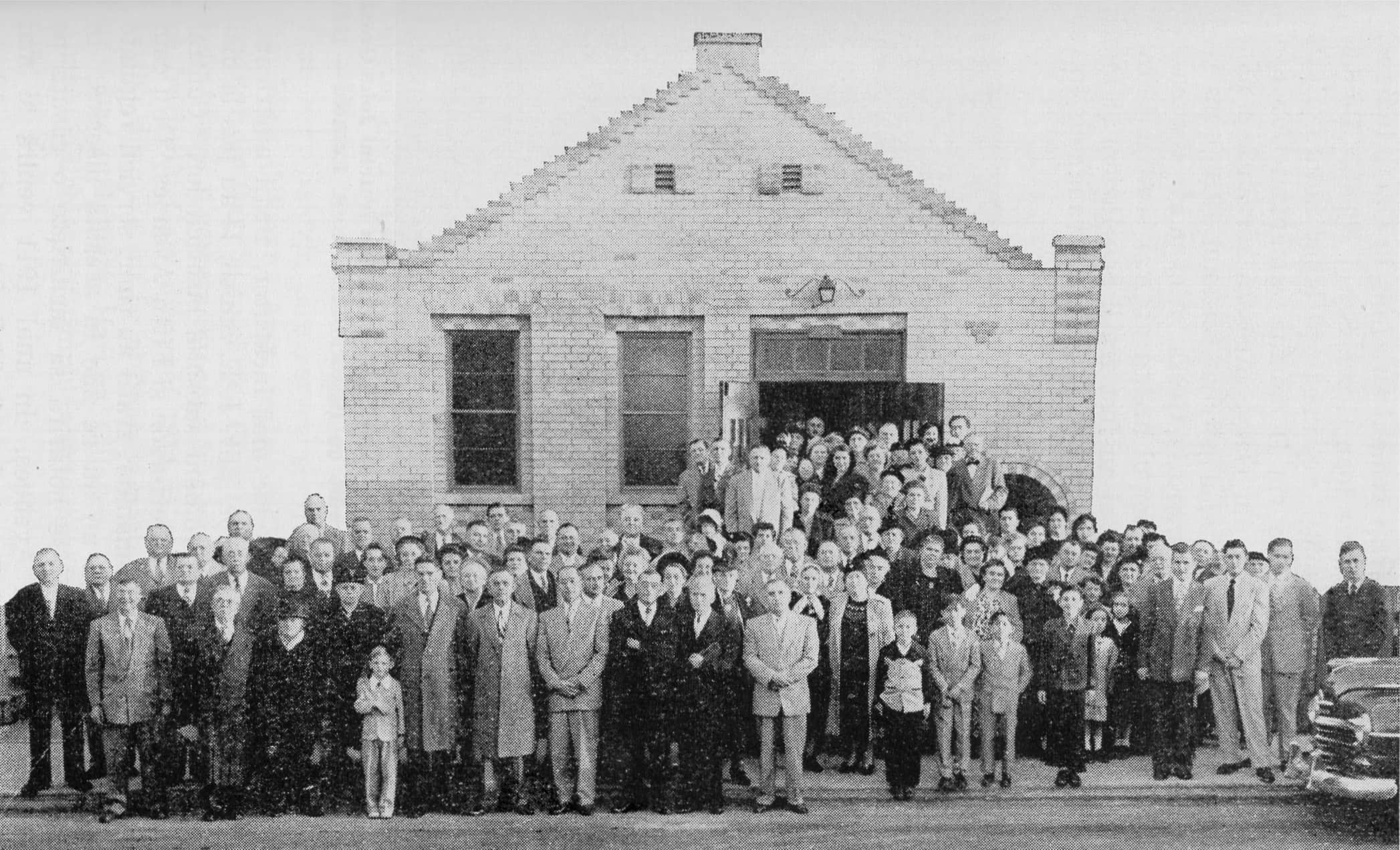
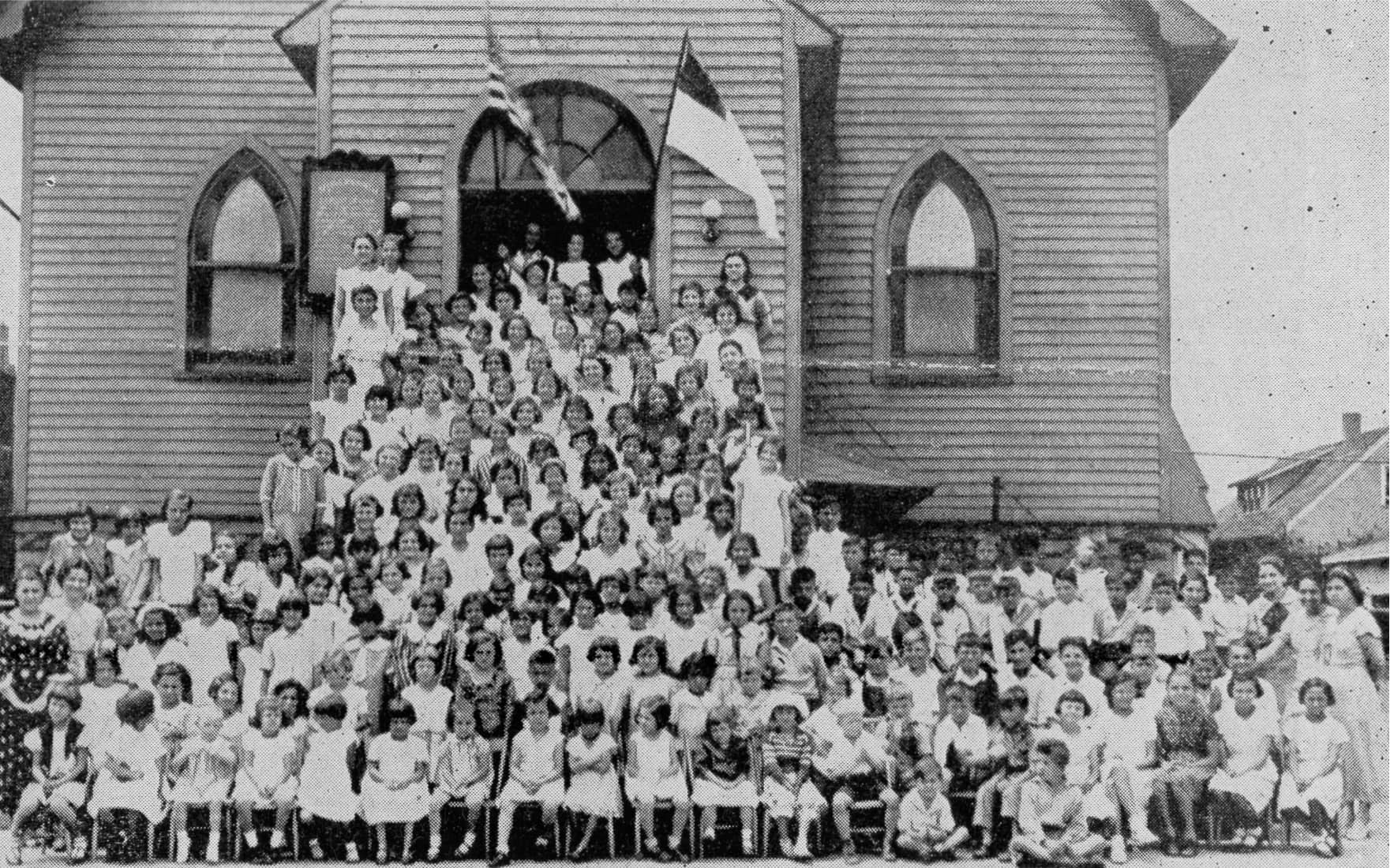
The growth in the number of believers necessitated a dedicated place of worship. Thus, on February 4, 1914, the building located at 445 Farnsworth Street was dedicated. In the same year, the church diversified its activities, including the establishment of a brass band led by brother Petru Crișan. In just three years, the church grew to 60 members.
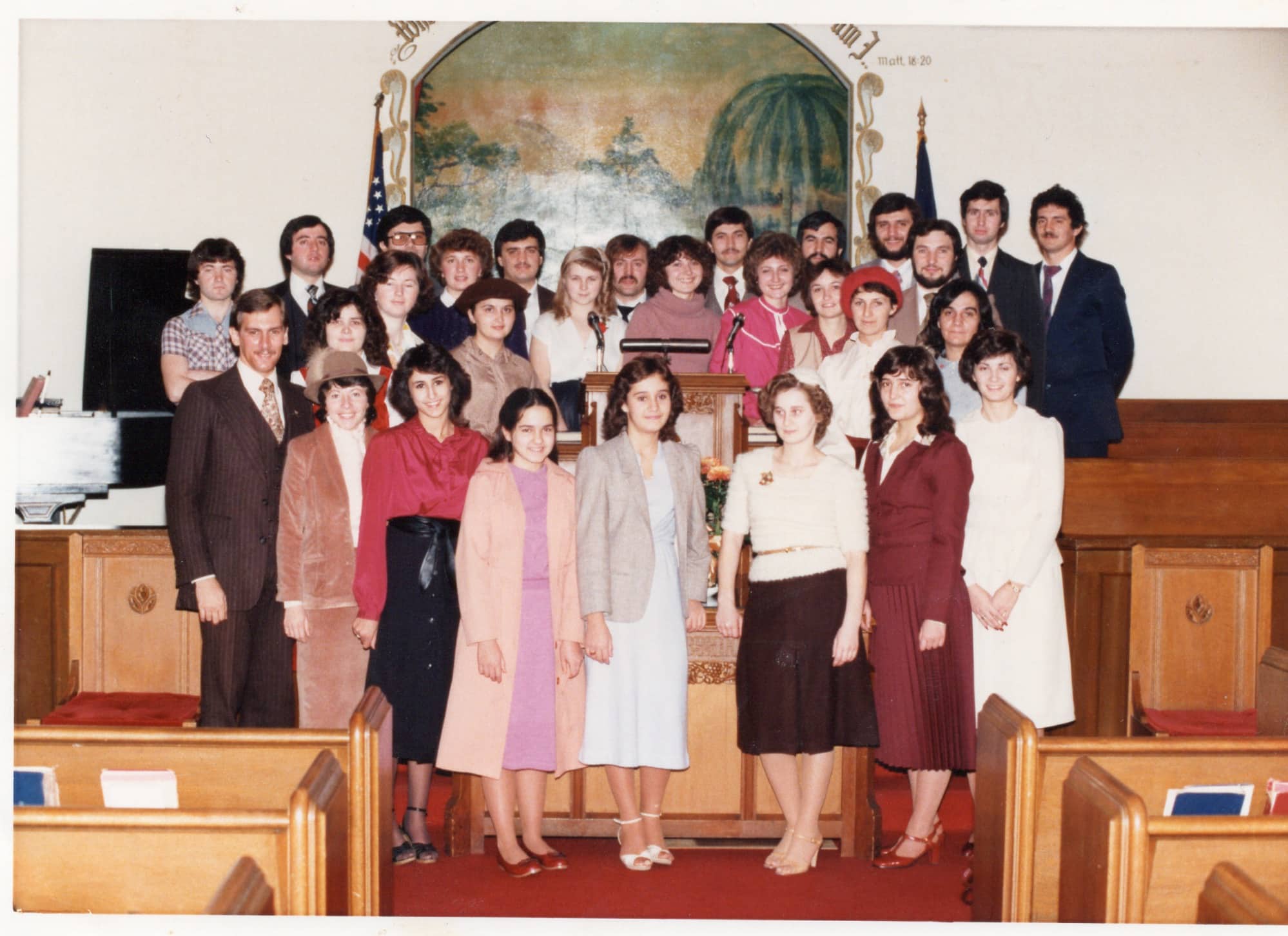
Over the years, the First Romanian Baptist Church of Detroit has had several addresses, with believers striving to build places of worship that would provide optimal conditions:
- 1914: Dedication of the first place of worship on Farnsworth Street.
- 1915: Acquisition of a new building on Rivard Street.
- 1942: The place of worship on Woodward Avenue.
- 1985: The place of worship in Troy.
Borther Lazăr Talpeș
In 1915, after the acquisition of the new building on Rivard Street, brother Lazăr Talpeș was ordained as pastor on April 25, 1915, becoming the first pastor of the church. Pastor Christopher Burnett, who was a passionate supporter of the Romanian community, also participated in his ordination.
The official organization of the First Romanian Baptist Church of Detroit took place in February 1916, and by the end of the year, the community already numbered 225 members.
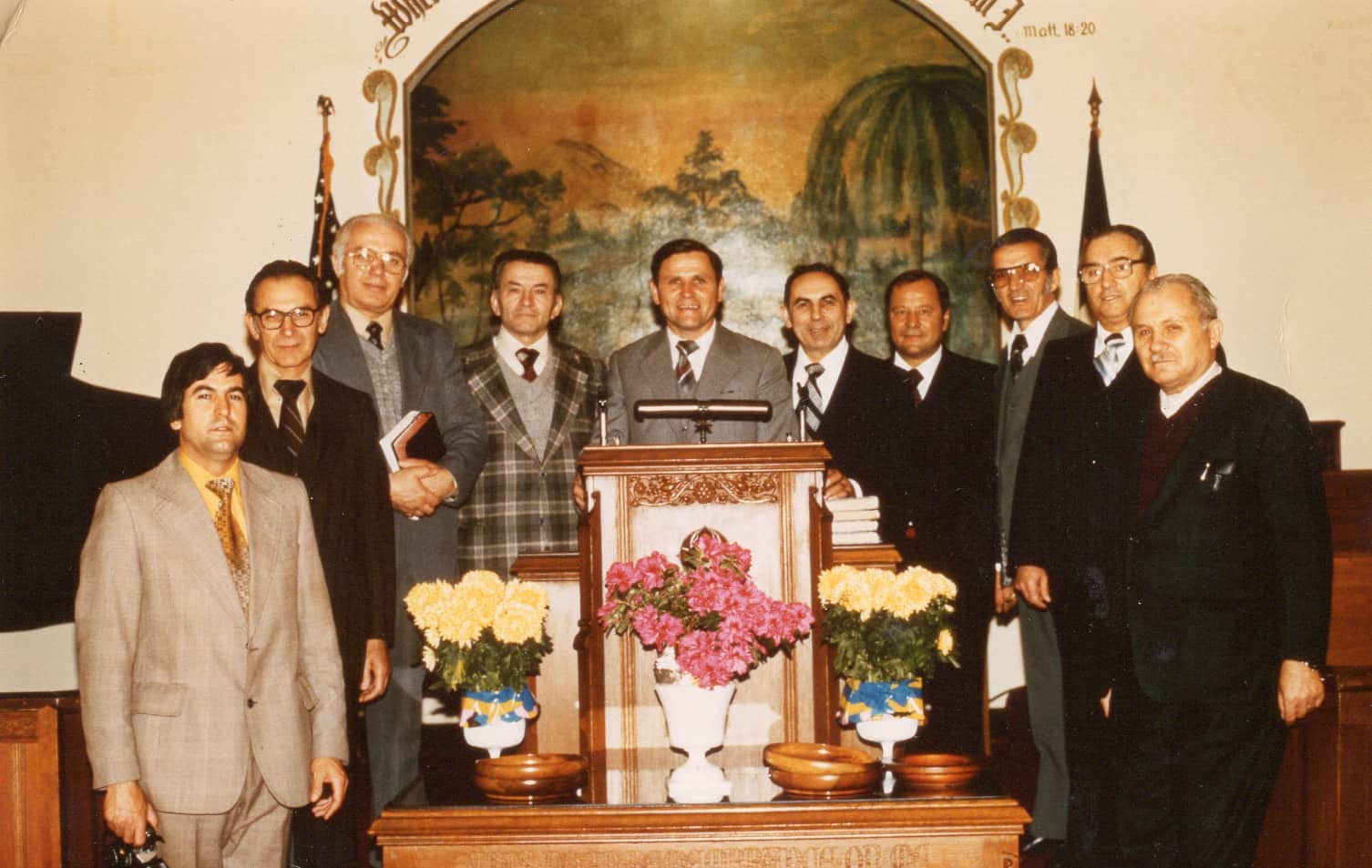
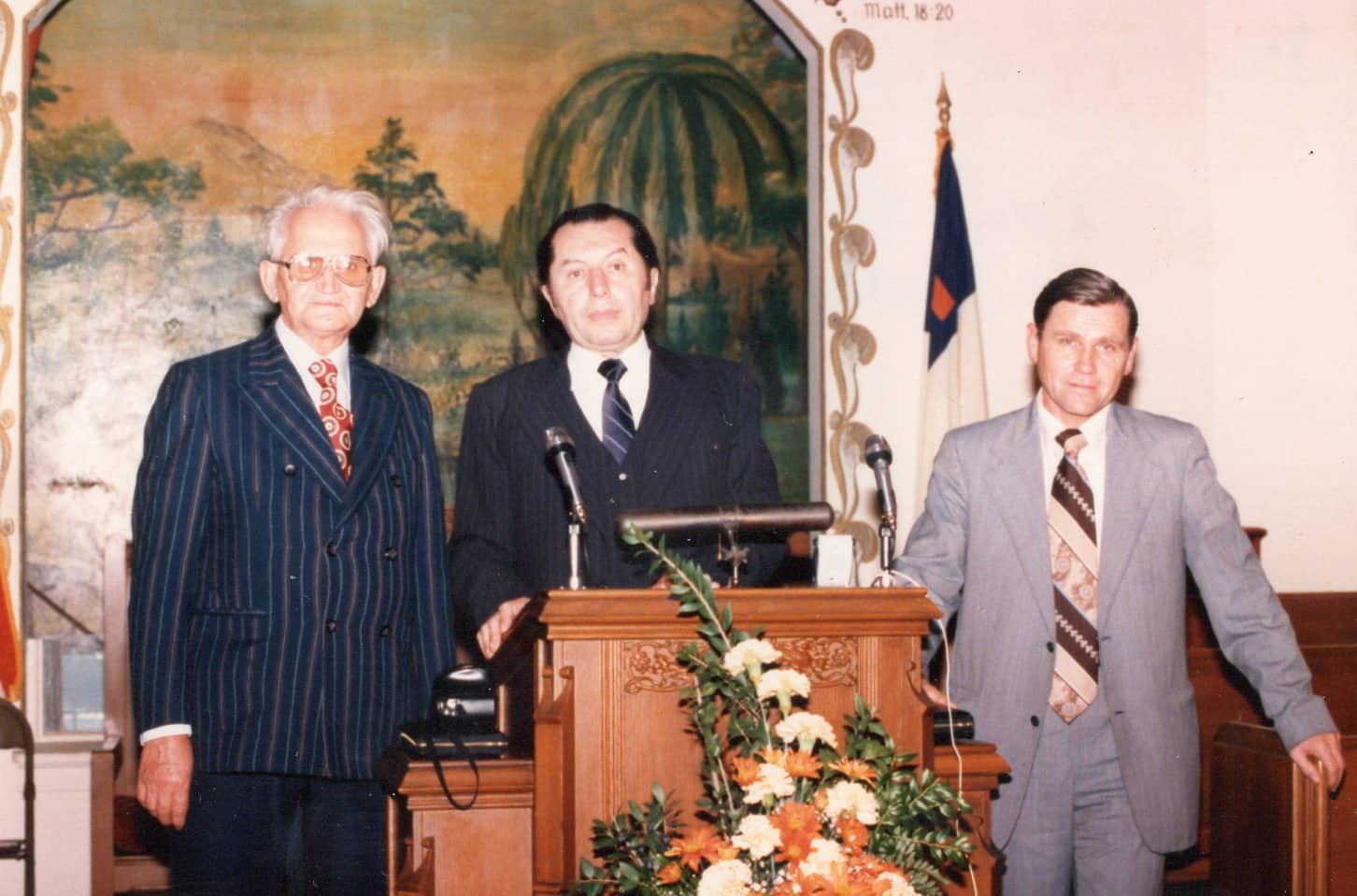
În următoarele decenii biserica a trecut prin provocări și perioade de creștere. Printre pastorii care au slujit Prima Biserică Baptistă Română din Detroit sunt:
- Rev. Lazăr Talpeș (1915-1917; 1927-1959)
- Rev. Arsenie Lucaciu (1964-1979)
- Rev. Liviu Olah (1978-1980)
- Rev. Titus Sfârlea (1980-1985)
- Rev. Ioan Stef și Dr. Beniamin Cocar (1986-2001)
Over the years, the church has been involved in numerous activities:
-
Preaching and evangelism (including Romanian-language radio programs)
-
Musical activities (choir, brass band, orchestra, praise groups)
-
Social activities (Red Cross, aid for disaster victims, charity, missionary projects)
-
Youth programs (meetings, visits, Bible studies, conventions, conferences, and events)
-
Building and relocating places of worship to accommodate community growth
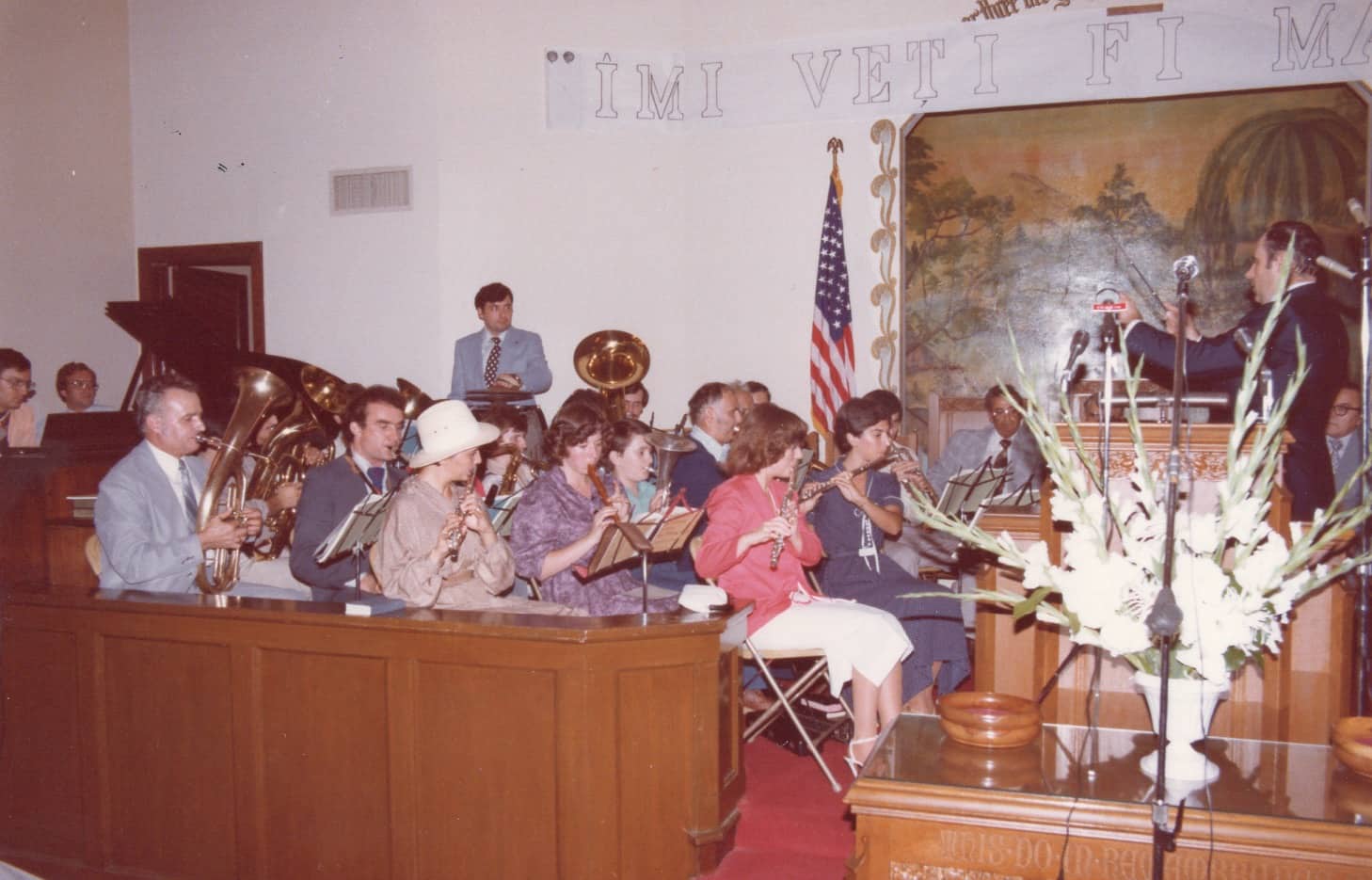
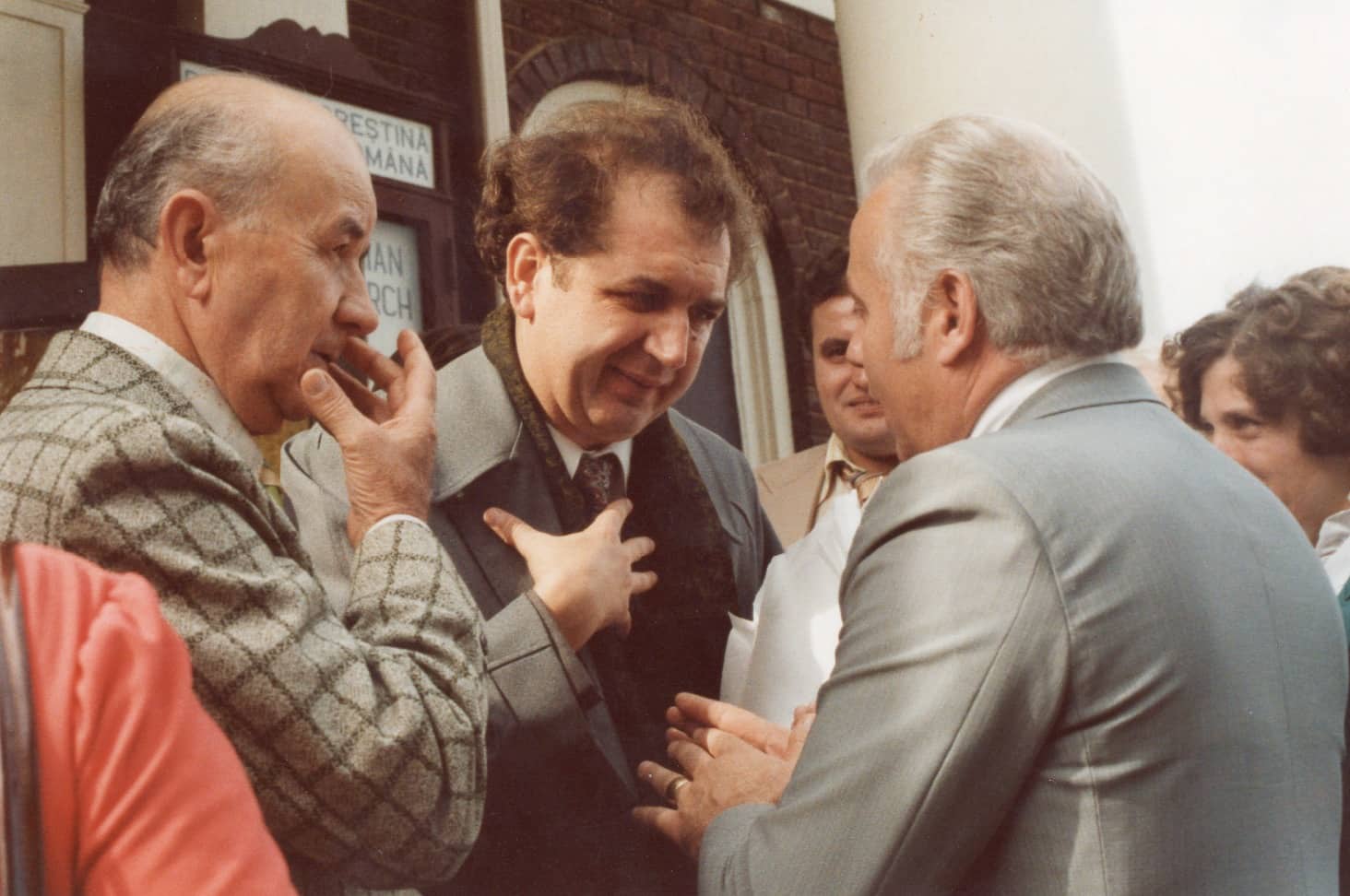
An important moment in the church’s history was its relocation to Troy, Michigan. In 1982, the building on Woodward Avenue was sold, and on October 9, 1983, the cornerstone of the new church was laid. Construction was completed in February 1985, and the dedication service took place on May 5, 1985.
All these events and names are nothing more than a reflection of the consistency with which God has blessed His church, and today we can gratefully declare: Eben-Ezer! “Thus far the Lord has helped us!” We also know that the history of this church has not ended. It continues under the watchful eye and care of God.
